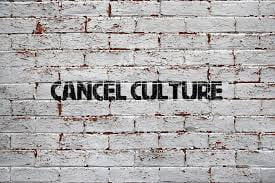
Social media has now become a mainstay in our culture. We use social media to communicate and interact socially with our family and friends. Social media and the Internet allow us to share our whereabouts and latest experiences with just about everyone on the planet instantly with just a click of a button. The police department now understands this shift in culture and is using social media and the advancement in technology to their benefit. “Police are recognizing that a lot of present-day crimes are attached to social media. Even if the minuscule possibility existed that none of the persons involved were on social media, the crime would likely be discussed on social media by people who have become aware of it or the media organizations reporting it”.
Why social media is the New Police Investigative Tool?
Why are police so successful fighting crime with social media? It’s because a lot of us are addicted to social media and it’s our new form of communication. The addiction of social media has made it easier for police to catch criminals. Criminals tend to tell on them selves these days by simply not being able to stay off social media. We tell our friends confidential information through social media with the false narrative of thinking that what we say can’t be traced back to us. We even think that since we put our pages on private, that our information can’t be retrieved. However, that’s far from the truth. Bronx criminal Melvin Colon found this out the hard way. Police authorities suspected Colon of crimes but lacked probable cause for a search. “Their solution: finding an informant who was friends with him on Facebook. There they gathered the bulk of the evidence needed for an indictment. Colon’s lawyers sought to use the Fourth Amendment to suppress that evidence, but the judge ruled that Colon’s legitimate expectation of privacy ended when he disseminated post to his friends. The court explained that Colons ‘friends’ were free to use the information however they wanted—including sharing it with the Government.” This illustrates that even information we think is private can still be accessed by police.
How Police use social media as an Investigative Tool?
“Most commonly, an officer views publicly available posts by searching for an individual, group, hashtag, or another search vector. Depending on the platform and the search, it may yield all the content responsive to the query or only a portion. When seeking access to more than is publicly available, police may use an informant (such as a friend of the target) or create an undercover account by posing as a fellow activist or alluring stranger”. This allows officers to communicate directly with the target and see content posted by both the target and their contacts that might otherwise be inaccessible to the public. Police also use social media to catch criminals through sting operations. “A sting operation is designed to catch a person in the act of committing a crime. Stings usually include a law enforcement officer playing the part as accessory to a crime, perhaps as a drug dealer or a potential customer of prostitution. After the crime is committed, the suspect is quickly arrested”. Another way social media is used as an investigative tool is through location tracking. “Location tracking links text, pictures and video to an exact geographical location and is a great tool for law enforcement to find suspects”. Due to location tagging, police can search for hot spots of crime and even gain instant photographic evidence from a crime. Social media is also used as an investigative public outreach tool. It helps the police connect with the public. It allows for police to communicate important announcements to the community and solicit tips on criminal investigations.
What does the law say about Police using social media?
There are few laws that specifically constrain law enforcement’s ability to engage in social media monitoring. “In the absence of legislation, the strongest controls over this surveillance tactic are often police departments’ individual social media policies and platform restrictions, such as Facebook’s real name policy and Twitter’s prohibition against using its API for surveillance”. Many people try to use fourth amendment as protections against police intrusion into their social media privacy. The Fourth Amendment guarantees the right of the people to be free from unreasonable searches and seizures. The inquiry against unreasonable searches and seizures is whether a person has a “reasonable expectation of privacy” and whether society recognizes that expectation as reasonable. The court states individuals do not have a recognized expectation of privacy in data publicly shared online. Law enforcement can also seek account information directly from social media companies. Under the Stored Communications Act, law enforcement can serve a warrant or subpoena on a social media company to get access to information about a person’s social media profile. The Stored Communications Act also permits service providers to voluntarily share user data without any legal process if delays in providing the information may lead to death or serious injury. “Courts have upheld warrants looking for IP logs to establish a suspect’s location, for evidence of communications between suspects, and to establish a connection between co-conspirators”.


